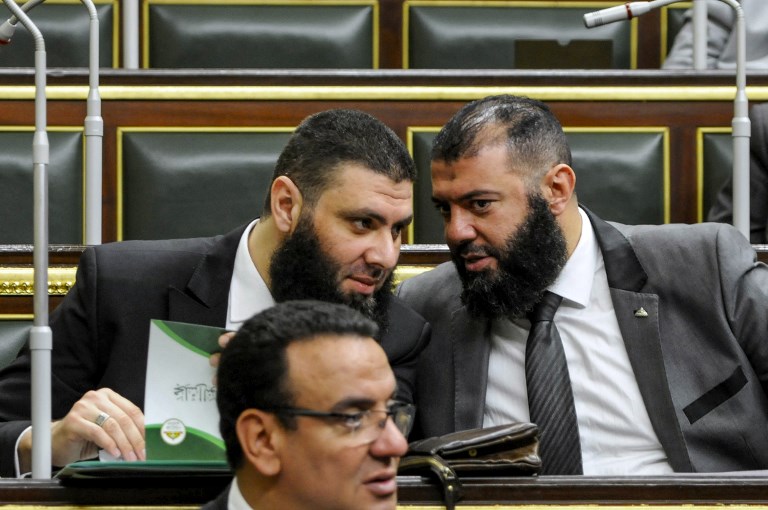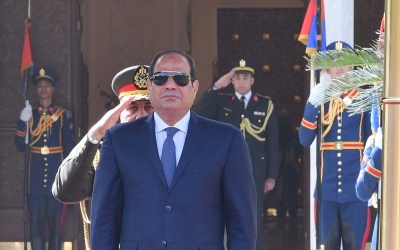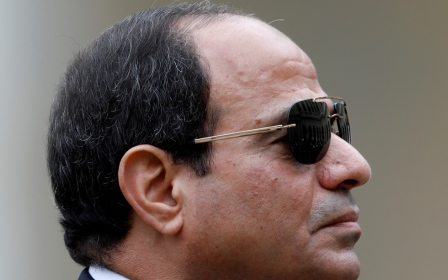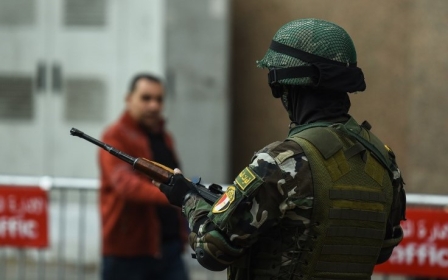Egypt is heading for one-man rule, unless this constitutional calamity is stopped
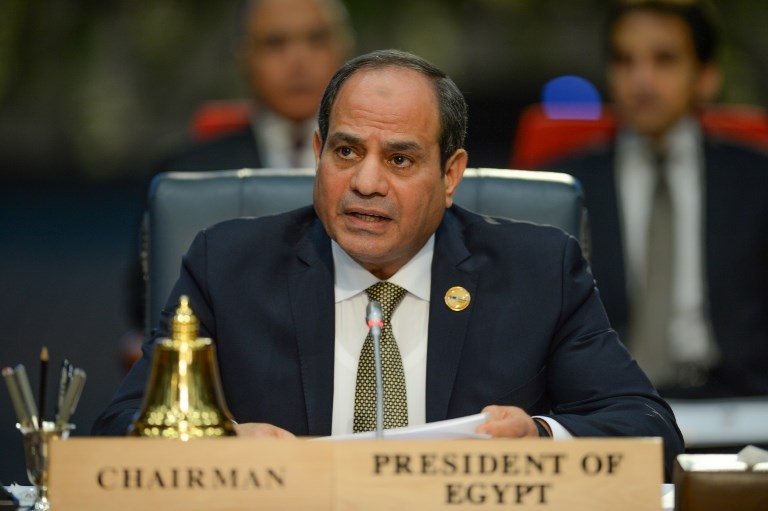
The constitutional amendments being debated by the Egyptian parliament represent a political disaster, as they would pave the way for a single person - namely President Abdel Fattah al-Sisi - to remain in power for 20 years (2014-34).
The proposed amendments are also a setback for one of the few remaining accomplishments of the 25 January 2011 revolution, which limited presidents to a maximum of two four-year terms in office.
The amendments, proposed by members of parliament loyal to Sisi, constitute the final step towards consolidating Sisi’s authoritarian rule. They would make the military the guardians of the state, amending Article 200 of the current constitution - approved in 2014 - to give the military responsibility to protect “the constitution and democracy and the fundamental makeup of the country and its civil nature”.
Wide-ranging powers
Yet these amendments bear no relation to democracy or the civil nature of the state, giving the army unprecedented power in the history of modern Egypt.
Stay informed with MEE's newsletters
Sign up to get the latest alerts, insights and analysis, starting with Turkey Unpacked
If the amendments pass, as is anticipated, Egypt will be transformed into a condition similar to that of Turkey throughout the 20th century: of South American states, including Brazil, Argentina and Chile throughout the seventies; or of Thailand at the beginning of the nineties. This is why the process of democratic transition in these countries was delayed by decades.
The proposed amendments would also allow the head of state wide-ranging powers over the selection of the judiciary. This would guarantee the loyalty of those appointed towards the president, potentially influencing the impartiality of judicial bodies.
Egyptian opposition forces could utilise this momentum to present a unified political programme to stop this constitutional calamity
It is worth remembering that the current constitution was officially passed on 18 January 2014, drafted via an unelected committee after the 2013 coup that toppled Mohamed Morsi, Egypt’s first democratically elected president.
At the time, Egyptian media lauded the constitution, with some regime supporters describing it as “the greatest constitution in the history of Egypt”. But Sisi has expressed, more than once, his dissatisfaction with the constitution and hinted at the importance of amending it on the grounds that it restricts his powers.
Repression and division
The key question now is: can the constitutional amendments be stopped, and if so, how? The simple answer is no, since Sisi controls the majority of the state apparatuses and institutions, from the parliament to the media, judiciary and security forces.
While some members of the judiciary have expressed a faint discontent with the proposed amendments, judicial bodies, such as the State Council and the Egyptian Judges' Club, have not taken a public stand. At the same time, the Egyptian opposition suffers from repression, exclusion and division, weakening its powers to put a halt to the amendments.
In addition, the regime has launched a campaign of repression and intimidation against anyone who dares to reject the amendments. In recent days, security forces have arrested a number of members of the Constitution Party, founded by former vice president, Mohamed el-Baradei, over their rejection of the proposed amendments.
The state is simultaneously undertaking a promotional campaign to persuade the population to vote yes on the amendments, under the pretext of protecting the state and ensuring stability.
Despite these difficulties, hope remains that the amendments could be stalled. A broad popular campaign could pressure parliament to reject them before they are put to a general referendum.
Some political bodies have begun to do this, including the Civil Democratic Movement, a grouping of liberal and left-wing secular parties and public figures leading a campaign to garner support for a statement rejecting the amendments and calling for an end to tampering with the constitution. This statement has gained around 29,000 signatories in less than two weeks since its launch.
Mobilising opposition
Meanwhile, a number of influential social networking sites, including the Egyptian Position, have published videos of civilians who reject the amendments. This is generating significant momentum, which has been lacking in Egypt over the past six years.
Egyptian opposition forces could utilise this momentum to present a unified political programme to stop this constitutional calamity - in the process, overcoming their political and ideological divisions.
If the amendments are approved by parliament in early April, as is expected, opposition forces may turn to the alternative plan of mobilising people to vote “no” in the ensuing referendum. It is possible that the amendments will pass regardless, whether due to state propaganda or forged results - but if the opposition successfully organises its position, it will be able to counter-mobilise.
Another important party in this equation is the regime’s slate of Western allies, particularly the US and Europe. The regime needs their support, or at least their silence, to pass these amendments without a fuss. As such, these Western countries could persuade the regime to back away from the amendments, based on the potential for instability in the long term. But the question is: do the US and Europe want this?
The views expressed in this article belong to the author and do not necessarily reflect the editorial policy of Middle East Eye.
This article is available in French on Middle East Eye French edition.
Middle East Eye delivers independent and unrivalled coverage and analysis of the Middle East, North Africa and beyond. To learn more about republishing this content and the associated fees, please fill out this form. More about MEE can be found here.



